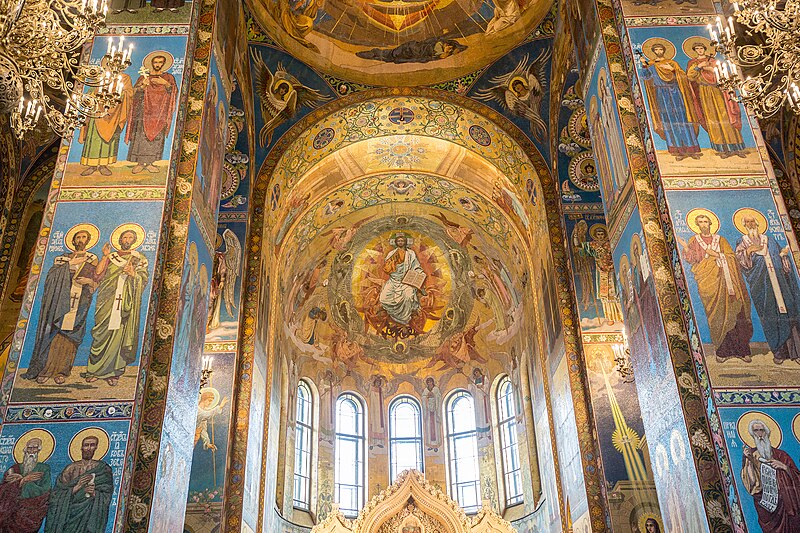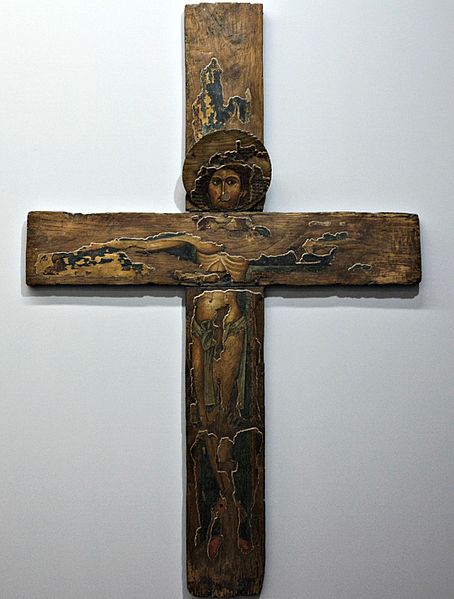 A message from Easter morning
A message from Easter morning
The Resurrection of Our Lord, year A
April 12, 2020
Jeremiah 31:1-6: At that time, says the LORD, I will be the God of all the families of Israel, and they shall be my people.
Thus says the LORD:
The people who survived the sword
….found grace in the wilderness;
when Israel sought for rest,
….the LORD appeared to him from far away.
I have loved you with an everlasting love;
….therefore I have continued my faithfulness to you.
Again I will build you, and you shall be built,
….O virgin Israel!
Again you shall take your tambourines,
….and go forth in the dance of the merrymakers.
Again you shall plant vineyards
….on the mountains of Samaria;
the planters shall plant,
….and shall enjoy the fruit.
For there shall be a day when sentinels will call
….in the hill country of Ephraim:
“Come, let us go up to Zion,
….to the LORD our God.” (NRSV)
Matthew 28:1-10: After the sabbath, as the first day of the week was dawning, Mary Magdalene and the other Mary went to see the tomb. And suddenly there was a great earthquake; for an angel of the Lord, descending from heaven, came and rolled back the stone and sat on it. His appearance was like lightning, and his clothing white as snow. For fear of him the guards shook and became like dead men. But the angel said to the women, “Do not be afraid; I know that you are looking for Jesus who was crucified. He is not here; for he has been raised, as he said. Come, see the place where he lay. Then go quickly and tell his disciples, ‘He has been raised from the dead, and indeed he is going ahead of you to Galilee; there you will see him.’ This is my message for you.” So they left the tomb quickly with fear and great joy, and ran to tell his disciples. Suddenly Jesus met them and said, “Greetings!” And they came to him, took hold of his feet, and worshiped him. Then Jesus said to them, “Do not be afraid; go and tell my brothers to go to Galilee; there they will see me.” (NRSV)
+ + +
A note as we begin: Often, as I read the text, I notice things that I’d like to stop and point out. One of these, this morning, is this word ‘greetings’. The Greek word for ‘greetings’ is ‘rejoice’, and I have to think that might have been a better translation in this particular instance when the risen Lord greets the women as they run to tell the others.
Matthew’s text is a wonderful accounting of the resurrection. It conveys the earth-shattering nature of what has happened in Christ Jesus. The earth quakes at Jesus’ death and, now, a shaking earth accompanies his resurrection. That notion of the earth convulsing at the death and resurrection of Jesus, of all creation being changed, is a wonderful part of Matthew’s proclamation of the resurrection.
Grace to you and Peace, from God our Father and our Lord and savior, Jesus the Christ.
The reading from Jeremiah, today, contains one of my favorite verses:
The people who survived the sword
….found grace in the wilderness.
There is much in this passage from Jeremiah that is sweet. It is a promise of a future for the people when all seems lost. But this verse, in particular, carries profound sweetness for me. It is the simple promise that we will find grace in the wilderness.
Jeremiah spent much of his life preaching against the leadership of his nation. God gave the prophet a task of warning the people they were heading towards disaster. They had turned away from God’s fundamental commands to do justice and mercy. Greed and power dominated the leadership of the country. The leaders listened to house prophets who told them everything was great, the king was wonderful, that everything he did would prosper, and the only thing awaiting them was blessing. These house prophets were fed at the king’s table.
The independent prophets God raised up, like Jeremiah and Ezekiel, were perceived as a thorn in the side of the king and an enemy of the country. Jeremiah was called a traitor, people wanted to kill him and, at one point, was thrown into the mud at the bottom of an empty cistern.
When Jeremiah was banned from the temple courtyards, he had his secretary, Baruch, write down all the prophetic messages he had received from God, and had Baruch go read them. There were faithful people in the palace who succeeded in getting the prophet’s message before the king but, as they read from the scroll Jeremiah had dictated, the king took his knife, sliced off each ‘page’ of the scroll as the reader finished, and tossed it into the fire burning next to him for warmth.
The nation was living on an illusion that nothing could hurt them. The leadership had a vain and exalted image of themselves. And the incompetence and folly of the king and leading wealthy families led ultimately to the destruction of the nation.
Perhaps, the most chilling story is that even after all that Jeremiah had warned came to pass, after the Babylonians had destroyed the temple and palace and carried off the ruling citizens in chains, there were zealots willing to murder the good and faithful person the Babylonians appointed as governor for being a collaborator.
In the chaos after the collapse of the nation, a group of refugees came to Jeremiah, acknowledging that they hadn’t listened to God’s warnings and promising that they would now do whatever God told him they should do. Jeremiah went off in prayer and returned with a word from God that the people should stay in the land. But they accused Jeremiah of lying and wanting to harm them. Taking Jeremiah captive, they fled to Egypt as they had wanted to do.
Jeremiah watched his nation come apart, watched his people ignore all that God said to them about justice and mercy and care for those in need, watched the Babylonian armies come not once but twice – ultimately killing all the king’s sons, looting and destroying the temple, burning it to the ground, tearing down the city walls, and carting off thousands in chains as prisoners and slaves.
Caught up in their vanity and idolatry, the leadership of the nation failed profoundly and persistently. They ignored God’s commands to keep sabbath, to care for the poor, to protect the vulnerable, to seek justice and live mercifully. Filled with arrogant folly, they drove the nation off a cliff.
War came. Marching armies and brutal siege brought devastating hunger followed by devastating slaughter and bottomless despair. But when tragedy struck, God’s message turned to grace and hope, and “The people who survived the sword found grace in the wilderness.”
There would yet be mercy for them. There was hope. There was a word from God that said, “I have loved you with an everlasting love; therefore I have continued my faithfulness to you.”
“I have loved you with an everlasting love.” Dancing will come again. Vineyards will be planted and they will enjoy the fruit. It will not be plundered by an enemy. It will not be sucked dry by drought. They will sing again and they will dance.
The scripture tells the human story without any varnish. Years of piety tend to shine things up, but the scripture paints a pretty sad – and sometimes graphic – portrait of human folly and sin and the sufferings and desolation we can face. Yet this book is also persistent in proclaiming that a new life will come. We will find grace in the wilderness.
The hate and lies that dominate our public square will not endure. The world doesn’t belong to tyrants and kings. It doesn’t belong to emperors. The world has its beginning in God and it will have its ending there. The world that began in goodness and life will be brought back to goodness and life.
The death and resurrection of Jesus is part of this story of human folly and divine faithfulness. We will find favor in the wilderness. When everything seems lost, there God will be found gathering the dry bones and breathing into them new life. There God will take hearts of stone and turn them into hearts of flesh. There God will make a new covenant when we have broken the old. There God will gather us to God’s table and set before us the finest banquet.
The people who survived the sword
….found grace in the wilderness.
God loves with an everlasting love. God’s faithfulness abides. The time of singing will come. Tambourines await.
Whatever sorrows life may bring, Christ is risen. Whatever wilderness we must traverse, Christ is risen. Whatever fear and uncertainty we confront, Christ is risen. Human greed and violence and sin and incompetence shall not prevail. Death does not win. Grace wins. Goodness wins. Life wins
The leadership of Jesus’ day may have called him a liar and a deceiver and a threat to the public good. But God has overturned their decision. God has proclaimed Jesus faithful and true.
What he taught is from God. What he did is from God. There is grace for the thief on the cross. There is grace for the woman caught in adultery. There is grace for Zacchaeus the tax collector. There is grace for the deranged man living among the dead. There is grace for the synagogue ruler and blind Bartimaeus and the woman who reached through the crowd to touch the hem of Jesus’ robe. There is Grace for all. And there is grace for you.
The people who survived the sword
….found grace in the wilderness.
Amen

Church of Our Savior on the Spilled Blood, St. Petersburg,
(so named because it was built on the site where the Russian Emperor Alexander II was assassinated in 1881).
(a wide view of the previous image).
+ + +
© David K Bonde, 2020, All rights reserved.
Photos: https://commons.wikimedia.org/wiki/File:%D0%9F%D0%BE%D1%82%D0%BE%D0%BB%D0%BE%D1%87%D0%BD%D0%B0%D1%8F_%D0%BC%D0%BE%D0%B7%D0%B0%D0%B8%D0%BA%D0%B0.jpg Timin Ilya / CC BY-SA (https://creativecommons.org/licenses/by-sa/4.0) [cropped].
https://commons.wikimedia.org/wiki/File:M25A9895.jpg Timin Ilya / CC BY-SA (https://creativecommons.org/licenses/by-sa/4.0)
Scripture quotations are from New Revised Standard Version Bible, copyright © 1989 National Council of the Churches of Christ in the United States of America. Used by permission. All rights reserved worldwide.


 Watching for the Morning of July 5, 2020
Watching for the Morning of July 5, 2020 Watching for the Morning of June 21, 2020
Watching for the Morning of June 21, 2020







